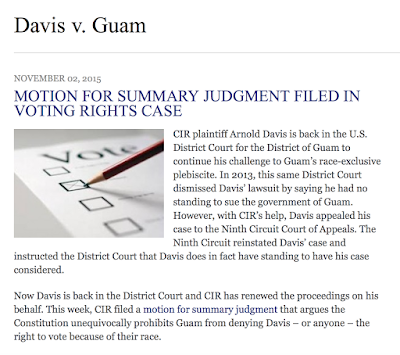The Politics of a Language Not Being the Language of Politics

I have spent untold hours in the collection of the Micronesian Area Research center going through stacks upon stacks of newspapers looking at ads of those running for political office in Guam. Although I don't mention it much, when I began my masters thesis at the University of Guam in Micronesian Studies, my initial topics was actually political campaigns in Guam and analyzing Chamoru discourse in campaigns. I conducted around 50 interviews over several months, with a wide range of people. My intent was to reveal what role Chamoru "culture" or "language" or "identity" played in the organizing of political campaigns, the outreach, the strategizing or rationale. My own motivation for taking on this project was tied to the 2002 Guam gubernatorial campaign. I was a young Chamoru grad student, who had started learning speaking Chamoru the year prior and was functionally, albeit awkwardly fluent in Chamoru. I was spending most of my free time in MARC



